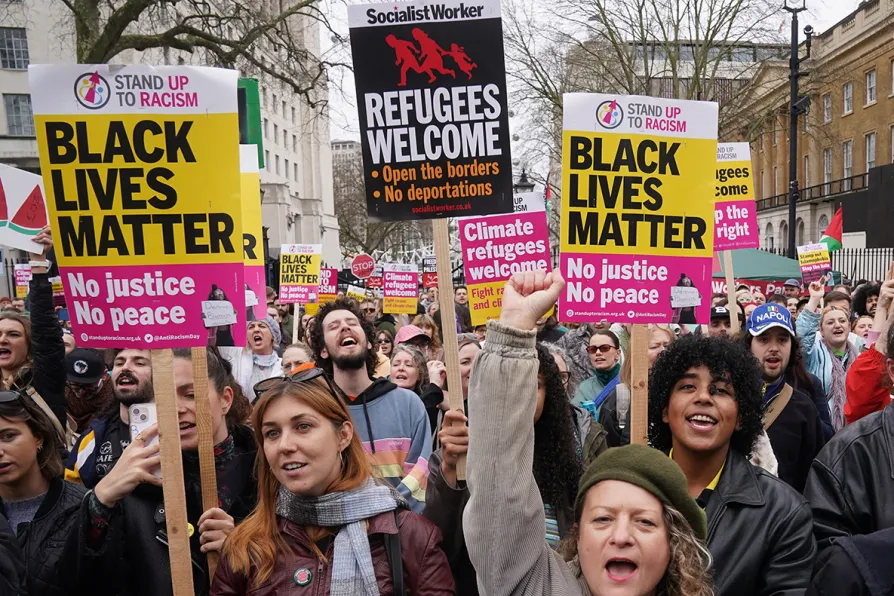Football's chance to counter-attack fascism
JAMES NALTON writes how sport and society are inseparable, and how fans can use this as a vehicle to show solidarity with those who have been targeted by racist riots

 People take part in an anti-racism march in central London orgainised by Stand Up To Racism and trade unions, March 16, 2024
People take part in an anti-racism march in central London orgainised by Stand Up To Racism and trade unions, March 16, 2024
A NEW season of English league football gets under way this week against a backdrop of racist rioting across the country and large-scale resistance to it.
As stadiums open their gates and teams return to action with fresh hope for a new season, football fans now have their chance to add to that resistance, as they have done on so many occasions in the past.
Similar stories

CJ ATKINS commemorates one of the most dramatic moments in working-class history

ROZ FOYER explains the significance and tradition of today’s St Andrew’s Day March and Rally

JAMES NALTON writes on the bizarre Aston Villa v Maccabi Tel Aviv scandal

TONY CONWAY assesses the lessons of the 1930s and looks at what is similar, and what is different, about the rise of the far right today










